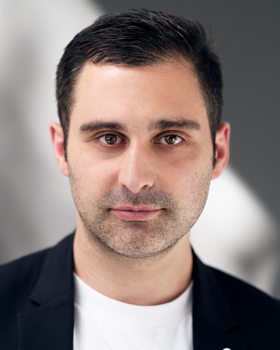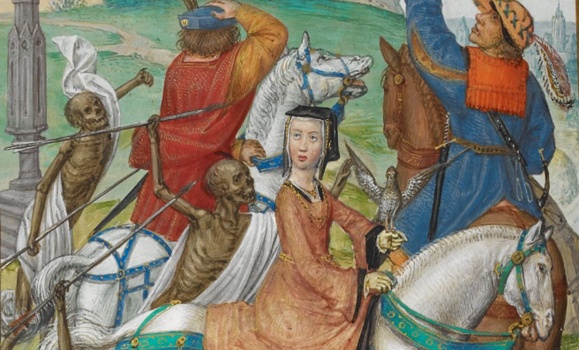Despite two years of navigating the pressures of the pandemic and supporting students, scholars in Dal’s Faculty of Arts and Social Sciences continue to demonstrate their commitment to important research and creative work across a range of fields.
features works by dozens of faculty members (and in some cases, collaborations with students), including articles, books, performances, productions, compositions, speaker series, and online symposiums — all covering a vast array of historic and contemporary topics of interest.
“FASS scholars are working at national and international levels to explore what matters to us as human beings, especially when we're in difficulty — from public policy and social justice to the languages, beliefs, and ideas that shape our interactions, to the beauty and meaning created and shared through the arts,” says Julia M. Wright, acting associate dean of research for FASS and coordinator of this year’s presentation.
Below, you’ll find a few examples of works by faculty members included in this year’s presentation, representing the social sciences, humanities, languages, and creative arts.
Exploring rural futures
 In spring 2022, Karen Foster, associate professor in Dal’s Department of Sociology and Social Anthropology (SOSA) and Canada Research Chair in Sustainable Rural Futures for Atlantic Canada, published the book, The Right to be Rural — a collection of analyses of rural societies, economies and governance in North America, Europe, Africa, and Asia.
In spring 2022, Karen Foster, associate professor in Dal’s Department of Sociology and Social Anthropology (SOSA) and Canada Research Chair in Sustainable Rural Futures for Atlantic Canada, published the book, The Right to be Rural — a collection of analyses of rural societies, economies and governance in North America, Europe, Africa, and Asia.
Dr. Foster has been developing the idea of a “right to be rural” in her work since 2015, and it served as the theme for presentations and panels before eventually becoming the theme for this book.
“This book has been a way to further the conceptual work I started on the right to be rural,” she explains. “It began with a fairly theoretical exercise of bringing literature on rurality together with literature on rights and citizenship, but the authors in the collection ran with it, and applied it to a really interesting range of case studies.”
Among the contributors to this book are two SOSA PhD students: Katie MacLeod, who wrote a chapter about Acadians’ right to French language education in rural Nova Scotia, and Rachel McLay, who co-authored a chapter on rural Atlantic Canadians’ political views and perceptions of change with former Dal SOSA faculty member, Howard Ramos.
Remote voyage to the Mediterranean
Emily Varto, associate professor in the Department of Classics, was going to finish  writing a social history of the early Iron Age Mediterranean and its adjacent regions when the pandemic led her to cancel a travel sabbatical. Instead, she taught three online courses and returned to working on some side projects, drawing on information gathered during previous trips to Greece, Turkey, and Italy.
writing a social history of the early Iron Age Mediterranean and its adjacent regions when the pandemic led her to cancel a travel sabbatical. Instead, she taught three online courses and returned to working on some side projects, drawing on information gathered during previous trips to Greece, Turkey, and Italy.
Dr. Varto says she is especially proud of her chapter, “Ancient Greeks in Their Mediterranean and Near Eastern Context,” published in Themes in Greek Society and Culture (2nd ed.). “This was researched, written, and published entirely during COVID shutdowns,” she explains. “Getting sources was a challenge, but the library system and the services Dal Libraries were able to provide under the circumstance were essential and greatly appreciated.”
Dr. Varto says writing about race, ethnicity, and the multi-cultural world of antiquity was particularly difficult but extraordinarily important. “Online lectures allowed me to draw on the terrific up-to-date work being done on these topics,” she says. “I also worked through many of the ideas and themes of the chapter with a wonderfully engaged group of students in an online upper-year seminar I taught on the subject in the winter of 2021. They really helped me clarify my thinking and pick up on student interests and concerns.”
News from the end of the world
Vincent Masse, associate professor in the Department of French with cross-appointments to Canadian Studies and European Studies, produced several publications over the past year, including two articles that are parts of his ongoing project on the advent of printed news (the first is part of a collection on the Tenshō embassy in Japan and the second as part of a collective on the phenomenon of “Fake News” before the Internet and television — with articles on the late 15th and early 20th centuries).
Dr. Masse also published an article on “proto-zombies” that surveys the spread of such creatures in 15th-16th century macabre art and literature, their survival through the 17th-19th centuries, followed by their revival in early cinema, which, he says, “had its fair share of ghosts and dancing skeletons!”
Dr. Masse adds he will be teaching a course next fall (offered in English) called The End of the World, from Apocalypse to Zombies (FREN 2666 and, yes, the selection of this course code was intentional). “Throughout the semester we’ll study several centuries-old motifs, from the Middle Ages to the early 20th century, in order to properly watch a selection of contemporary zombie movies in the last few weeks of class, as if they were caskets of finely aged wines, centuries in the making.”
A composer’s work finally sees the light
 As a composer, Jared Miller, assistant professor of Music Composition and Theory in the Fountain School of Performing Arts, says his creative research over the past year can be organized into three main categories: performances of already-composed works; premiers of new works; and preparation and composition of future works.
As a composer, Jared Miller, assistant professor of Music Composition and Theory in the Fountain School of Performing Arts, says his creative research over the past year can be organized into three main categories: performances of already-composed works; premiers of new works; and preparation and composition of future works.
“As our world has slowly begun to emerge from the pandemic, my work in all three of these categories has flourished, and I could not be happier about that!” says Miller.
Performances of Miller’s works initially planned for the 2020/2021 season were finally brought to life last summer and fall, including the U.S.-premiere of his orchestral work, Under Sea, Above Sky by the New Jersey Symphony Orchestra and Grammy-winning conductor Ludovic Morlot. Guilty Pleasures, a work for sextet, was also recorded by Vancouver's Standing Wave Ensemble and released on JUNO-Award nominated album, 20C Remix. Additionally, three of his new works had world premiere performances in Montreal, London (UK) and New York. He was also invited to the Hermitage Artist Retreat in Manasota Key, Florida for artist residencies to work on two upcoming works: a harp concerto for internationally renowned harpist Parker Ramsay and a consortium of four ensembles throughout North America, and a major work for ten players for New York's Exponential Ensemble, which will address the issue of the global climate emergency. Both of these works, he adds, have been generously funded by the Canada Council for the Arts Research and Creation Grants.
The Faculty of Arts and Social Sciences’s 2022 Celebration of Research presentation this link.

